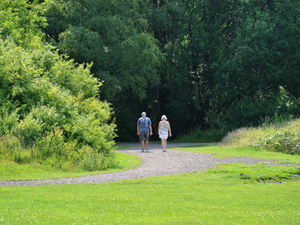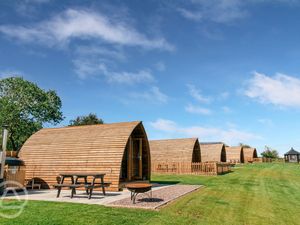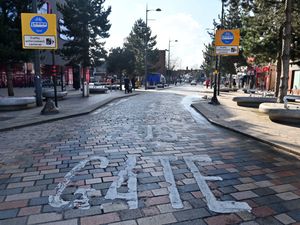Tragic loss led to a whole new role in life for therapist
In the midst of indescribable pain following the tragic death of her husband, Victoria Ann Spencer-Kibble turned to rapid transformational therapy (RTT) to help cope with her grief.
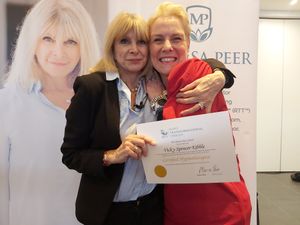
Her whole world, and that of her two young children, was turned upside down when her husband and diver Carl Spencer died while making a film about the sister ship of the Titanic in 2009, aged just 39.
“Being a young widow meant I put everything and everyone else before me and I felt I was drowning in the secondary losses that hit you after a young death,” says Victoria, from Kings Bromley in Staffordshire, who was 37 at the time.
“I wasn’t coping, I wasn’t sleeping, I wasn’t eating, I wasn’t breathing, I wasn’t living – I just wasn’t there.
“I existed, I functioned, I had to, I had two young bereaved children, they needed me,” she explains.
In an attempt to start coming to terms with her loss and ease her feelings of anxiety and stress, she first tried talk therapy but it didn’t make any difference.
She then discovered RTT, which embraces many of the positive aspects of hypnosis and hypnotherapy. The aim to very rapidly identify deeply embedded blocks and beliefs that stand in the way of living a healthy and vibrant life.
“I wanted to live and truly live freely and happily as Carl would have wanted. He would have wanted his two children to live life to the fullest too.
“For someone who was here for such a short time, Carl did more in his short 39 years than people do in a lifetime. He truly lived and he had so much more to give. Carl would want us to live life and be incredibly happy.
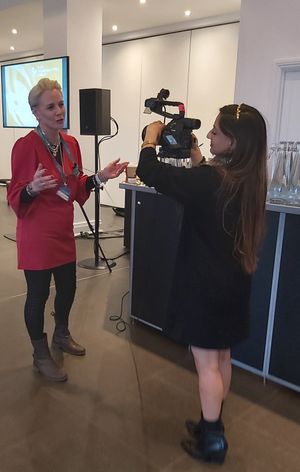
“In my first session of RTT, which was for my stress, anxiety and non-existent coping skills, my life changed so much so that I wanted to train in it. I wanted to change lives too.”
RTT was founded by Marisa Peer, a world-renowned speaker, therapist, and best-selling author with over three decades of experience.
“We all carry issues around from trauma in our life. RTT plucks out the root cause and re-wires the interpretation around the trauma leading to permanent results,” says Victoria.
After completing her training, she set up her own VASK therapy and has been helping others to reap the benefits.
“I love helping people to live their life to their fullest potential,” she says.
“Stress, anxiety and sleep are extremely intense issues, especially at the moment. The relief my clients get after a VASK therapy session is incredible.
“A lot of clients say ‘I feel lighter, like a weight has been lifted’ and quite speechless at how different they feel after just one session,” explains Victoria.
But her biggest achievement has been helping her second husband Stewart, who she says has been “extremely supportive”.
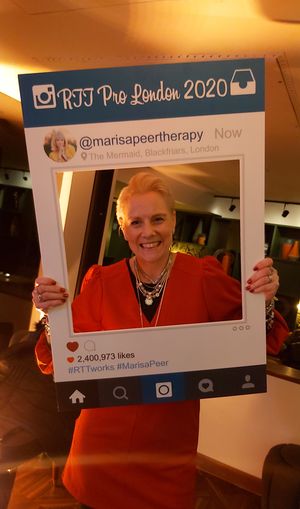
“His life has changed since my first ‘practise’ VASK session on him. Three years ago, my Stewart wanted to improve his confidence because he was born deaf, with no ear drums so he has always been under confident and lacked self-esteem.
“So, in Stewart’s VASK session we reviewed a belief that he had formed in his childhood around his confidence and deafness.
“At the same time Stewart had decided to start running to get himself fitter. Once we had got to the root, the reason, the cause to why he had no confidence and then we re-framed that belief using RTT specific techniques and tools.
“We were able to transform and flip his interpretation about confidence. It was an incredible VASK session. We both cried, we laughed and at the end he said ‘You know what Vicky, I’d love to run a Marathon’ to which I replied ‘You will, you will run the London Marathon’ – and guess, what he did.
“He ran the London Marathon in 2019. He is amazing. Now, my Stewart is training for an Ultra Marathon,” she explains.
Since lockdown, Victoria has been offering free sessions to help key workers feeling overwhelmed during the pandemic. She first advertised free RTT for paramedics, but said the huge response from fellow therapists led to her offering the support to more NHS staff.
“Then, Marisa Peer came on-board and we started helping any key workers as they were going to work, risking their lives to save ours.
“It was the least we could do to say a massive thank you to these incredibly brave people. I have been honoured to help them in an extraordinary unprecedented time,” adds Victoria.

